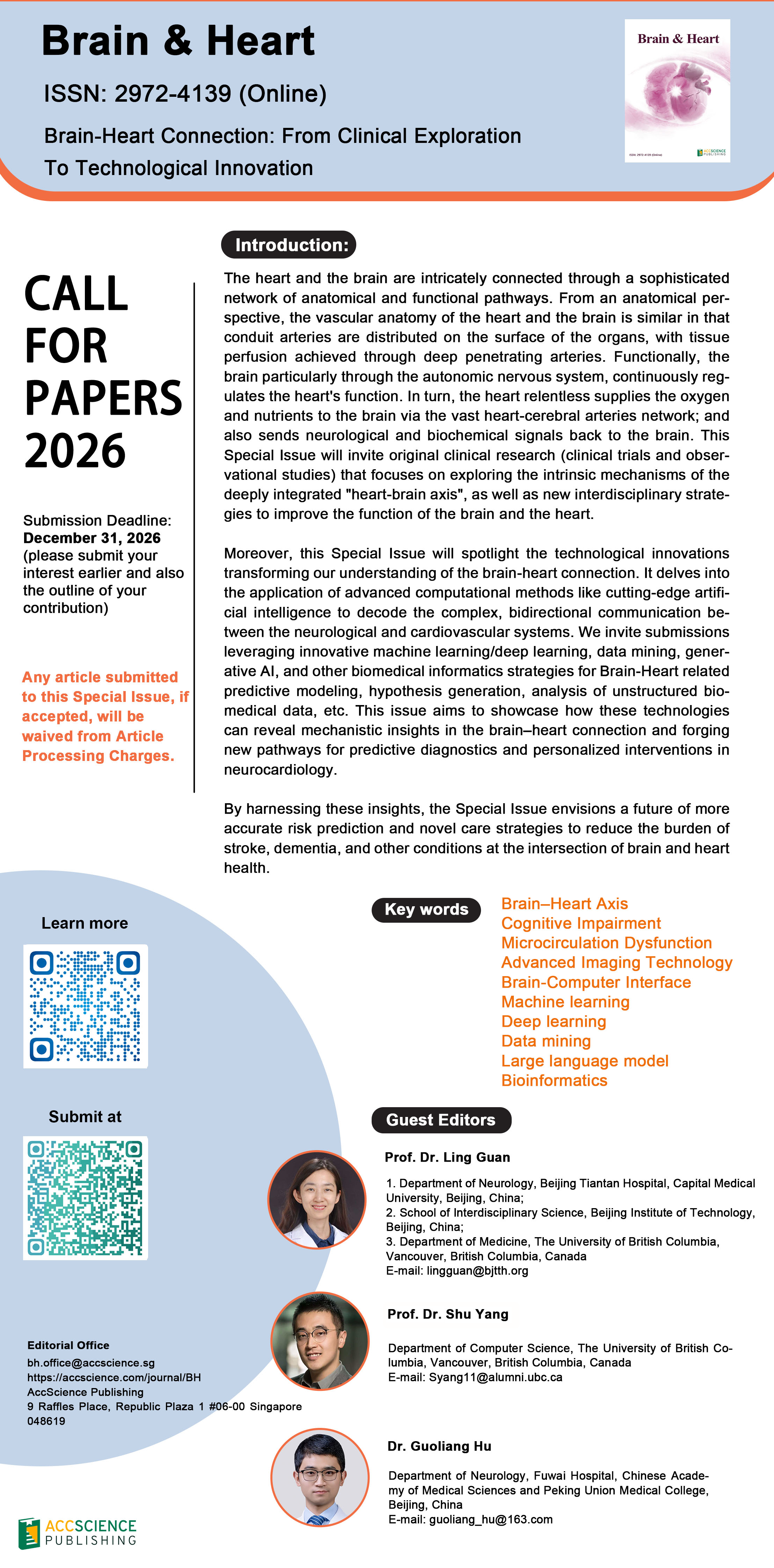
1. Department of Neurology, Beijing Tiantan Hospital, Capital Medical University, Beijing, China;
2. School of Interdisciplinary Science, Beijing Institute of Technology, Beijing, China;
3. Department of Medicine, The University of British Columbia, Vancouver, British Columbia, CanadaAutonomic nervous system, stress and cerebral hemodynamics; Cerebrovascular diseases and vascular cognitive impairment; Neuromodulation; Brain-heart connection; Medical-Engineering integration

The heart and the brain are intricately connected through a sophisticated network of anatomical and functional pathways. From an anatomical perspective, the vascular anatomy of the heart and the brain is similar in that conduit arteries are distributed on the surface of the organs, with tissue perfusion achieved through deep penetrating arteries. Functionally, the brain particularly through the autonomic nervous system, continuously regulates the heart's function. In turn, the heart relentless supplies the oxygen and nutrients to the brain via the vast heart-cerebral arteries network; and also sends neurological and biochemical signals back to the brain. This Special Issue will invite original clinical research (clinical trials and observational studies) that focuses on exploring the intrinsic mechanisms of the deeply integrated "heart-brain axis", as well as new interdisciplinary strategies to improve the function of the brain and the heart.
Moreover, this Special Issue will spotlight the technological innovations transforming our understanding of the brain-heart connection. It delves into the application of advanced computational methods like cutting-edge artificial intelligence to decode the complex, bidirectional communication between the neurological and cardiovascular systems. We invite submissions leveraging innovative machine learning/deep learning, data mining, generative AI, and other biomedical informatics strategies for Brain-Heart related predictive modeling, hypothesis generation, analysis of unstructured biomedical data, etc. This issue aims to showcase how these technologies can reveal mechanistic insights in the brain–heart connection and forging new pathways for predictive diagnostics and personalized interventions in neurocardiology.
By harnessing these insights, the Special Issue envisions a future of more accurate risk prediction and novel care strategies to reduce the burden of stroke, dementia, and other conditions at the intersection of brain and heart health.



